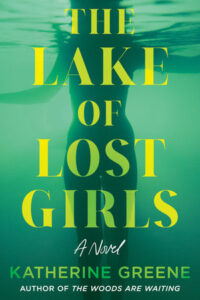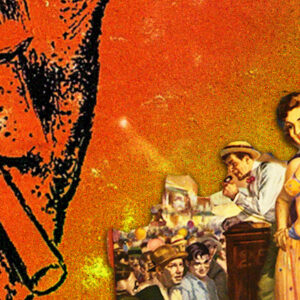You’d have to be living under a rock not to know we are living in the age of true crime. It’s a time where amateur sleuths with a mind to solving cold cases can shine. The internet is a treasure trove for the mystery-minded and social media has proven incredibly effective at raising the profile of crimes that otherwise had been relegated to the deep freezer. People can find any type of media to sate their true crime thirst. From books, to documentaries, to flashy dramas such as Ryan Murphy’s Netflix anthology series, Monsters, the increasing variety of content has brought all manner of horror and bloodshed to the forefront of people’s minds.
And the cherry at the top is the true crime podcast. Each week, eager listeners can follow along with various hosts as they dig their way through police reports and eyewitness testimony. It has become the favorite pastime for millions. Many of these hosts are doing it for the right reasons. There are multiple instances where these series have brought about real justice for the victims and their families. One need only to look at Serial, which some deem the ‘OG’ of true crime podcasts, to see the power they can wield in a system that often feels out of reach for the everyday person.
And while there have been some major breakthroughs in old cases due to the coverage, there are just as many shows that are routinely criticized for their exploitative focus on the gorier aspects of true crime. Podcasts that use gruesome stories of murder to garner fans who are looking for their next bloodthirsty fix. Pairing death with wine or makeup seems par for the course in this new world of consuming real cases all in the name of entertainment. For every Bear Brook and Up and Vanished there are hundreds more that gleefully pore over the worst of human nature all in the name of upping their listener numbers, which has, deservedly, led to many questioning the place of the true crime podcast in crime solving.
Despite this, one thing has become very clear: podcasts, and their popularity, aren’t going anywhere anytime soon. So, it only makes sense that thriller writers, always looking for unique and compelling ways to construct a plot, have started to use them as an interesting storytelling device in order to solve a greater puzzle.
When we began writing our newest thriller, The Lake of Lost Girls, the cold case podcast in our book became a way for us to reveal vital information important to the story while also exploring the moral implications of our desire to ingest true crime content.
What does it mean for society that it has become so easy for us to consume tales of murder and mayhem from the comfort of our homes, so far removed from the gritty truth of the crimes themselves? Have we lost sight of the victims? Their families? How does it impact the people at the heart of these heinous events to have their stories lapped up by a greedy public? And does it desensitize us to the horrors of the crimes themselves? These were questions we wanted to tackle all the while unraveling a layered and complicated mystery. We felt it was important to highlight the dichotomy of wanting to be involved in bringing a killer to justice, but also how easy it is to lose sight of the victims in the drive to go viral. We did this by focusing on those intimately affected by it all—the family. One of our protagonists, Lindsey, is a grief stricken sister, who morbidly listens to Ten Seconds to Vanish in a desperate need to learn more about her missing sibling and as a result begins to investigate the cold case for herself. Through her, we explore the world of true crime and its implications.
Our book, The Lake of Lost Girls, has joined an ever growing list of amazing stories that use this popular medium to deliver a fast-paced, and complicated narrative. It combines the best of both worlds; an old-school ‘whodunnit’ with the modern storytelling of a podcast. So, if you’re wanting the perfect read while you’re waiting for the next episode of your favorite true crime series to drop, we recommend one of these books. Particularly if dark, psychologically twisted novels are your cup of tea.
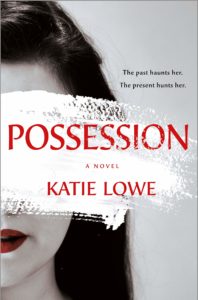
Possession by Katie Lowe: A woman can’t remember her husband’s murder. A cold case podcast has picked up the unsolved case convinced the wife is keeping secrets. A well executed plot full of twists and turns ensues.

Things We Do in the Dark by Jennifer Hillier: We’re unabashed lovers of all things Jennifer Hillier. And her story about a woman who’s much older celebrity husband is murdered, igniting a media circus due to its similarity to an earlier crime, is a great dive into the toxic culture of true crime and celebrity culture.
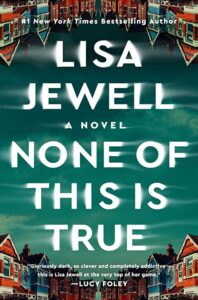
None of This is True by Lisa Jewell: It’s no lie that Lisa Jewell is one of the reigning queens of thrillers that make your jaw drop and her twisty book from last summer is no exception. It’s the story of a podcaster who gets tangled up in the life of a stranger who’s keeping dark and dangerous secrets. If you’re looking for an unpredictable plot that keeps you guessing, this will tick all of your boxes.
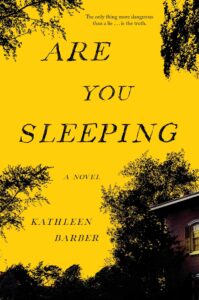
Are you Sleeping by Kathleen Barber: Part psychological thriller, part true crime podcast snippets. A woman’s past comes back to haunt her when a mega hit true crime podcast reopens her family’s murder case and threatens to unravel her carefully constructed life. Focusing on how trauma changes us and tears families apart, it highlights how social media can deeply influence people.
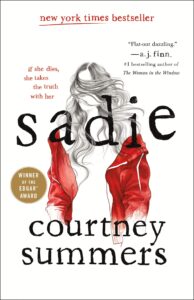
Sadie by Courtney Summers: This book focuses on some of our own very favorite things in a thriller: a small town, a missing girl, podcast snippets and revenge! A gut-wrenching story that flips back and forth between podcast segments and one jaded teen’s journey, with a closing line that will leave you speechless for a long time afterwards.
***


